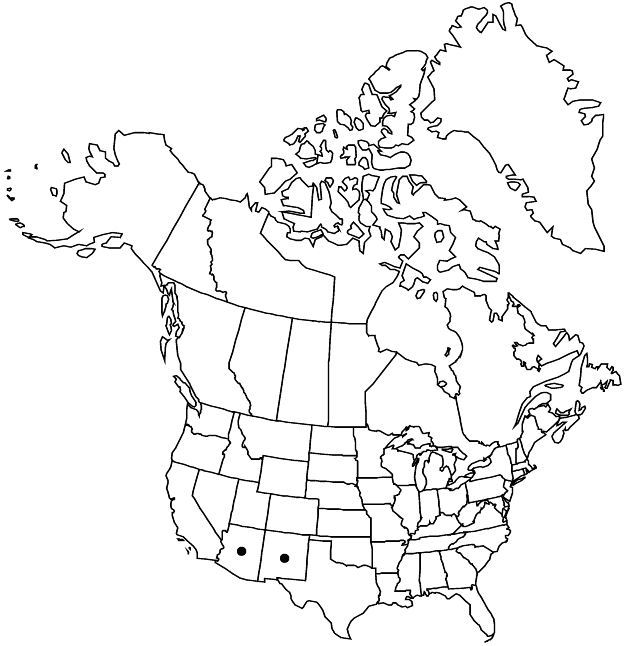Difference between revisions of "Arceuthobium campylopodum subsp. apachecum"
Phytoneuron 2012-51: 10. 2012.
Common names: Apache dwarf mistletoe
Basionym: Arceuthobium apachecum Hawksworth & Wiens Brittonia 22: 266. 1970
FNA>Volume Importer |
imported>Volume Importer |
||
| (4 intermediate revisions by 2 users not shown) | |||
| Line 11: | Line 11: | ||
|name=Arceuthobium apachecum | |name=Arceuthobium apachecum | ||
|authority=Hawksworth & Wiens | |authority=Hawksworth & Wiens | ||
| + | |rank=species | ||
|publication_title=Brittonia | |publication_title=Brittonia | ||
|publication_place=22: 266. 1970 | |publication_place=22: 266. 1970 | ||
| Line 39: | Line 40: | ||
-->{{#Taxon: | -->{{#Taxon: | ||
name=Arceuthobium campylopodum subsp. apachecum | name=Arceuthobium campylopodum subsp. apachecum | ||
| − | |||
|authority=(Hawksworth & Wiens) Nickrent | |authority=(Hawksworth & Wiens) Nickrent | ||
|rank=subspecies | |rank=subspecies | ||
| Line 54: | Line 54: | ||
|publication year=2012 | |publication year=2012 | ||
|special status= | |special status= | ||
| − | |source xml=https:// | + | |source xml=https://bitbucket.org/aafc-mbb/fna-data-curation/src/2e0870ddd59836b60bcf96646a41e87ea5a5943a/coarse_grained_fna_xml/V12/V12_295.xml |
|genus=Arceuthobium | |genus=Arceuthobium | ||
|species=Arceuthobium campylopodum | |species=Arceuthobium campylopodum | ||
Latest revision as of 19:14, 5 November 2020
Plants forming witches' brooms. Stems yellow, green, or red, 3.5(–9) cm; third internode 5–7.2(–10) × 1–1.5(–2) mm, dominant shoot 1–2 mm diam. at base. Staminate flowers 2.7 mm diam.; petals 3–4(–5). Fruits 4 × 2.5 mm.
Phenology: Flowering Jul–Sep; fruiting Aug–Oct.
Habitat: Coniferous forests with southwestern white pine.
Elevation: 2000–3000 m.
Distribution

Ariz., N.Mex., Mexico (Chihuahua).
Discussion
Meiosis occurs in July, with fruits maturing 13 months after pollination.
Subspecies apachecum is known only from a portion of the range of its only host tree, Pinus strobiformis. Subspecies blumeri also utilizes this host, but the two taxa are not sympatric.
Selected References
None.
Lower Taxa
None.